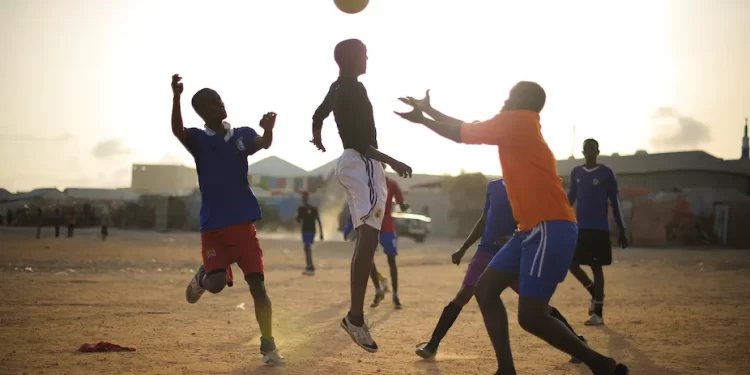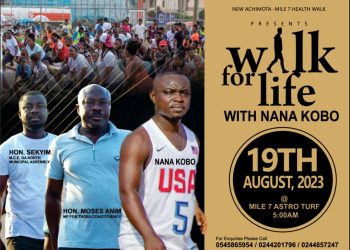Growing up, many young Africans nurse the ambition of playing football professionally in Europe and becoming superstars. The BBC reports that about 260 million people in Africa follow the English Premier League. Dreams, for some, do come true, and a few have succeeded in making the journey to Europe. According to Football Benchmark , African players – most of them from west Africa – make up about 6% of the total player base of the 11 most prominent leagues in Europe.
But it’s a difficult road, with ups and downs.
In my recent study of two west African footballers, Paul and John, in the German professional football league, the Bundesliga, I explored the experiences they had after arriving from Africa. I conducted face-to-face interviews with the players in October 2021 but have used pseudonyms to keep their identity anonymous, as required by research ethics.
Paul arrived in a central European country at 18 on trial from a youth academy in his home country and moved to Germany after five years. John arrived in Germany as an 18-year-old after graduating from a football academy in his home country. Environment, culture and identity shaped their careers and experiences, as well as the evolution of self. They experienced numerous challenges and struggles to fit in to their new environments, yet their determination to succeed enabled them to claim their own space.
As African footballers increasingly move to European leagues, more attention needs to be paid to the struggles they may experience in adjusting to a new country and how clubs and football institutions can assist them in this process.
Challenges for foreign footballers
Paul and John mentioned various cultural, mental and sport-related challenges.
Language barriers
The internet and cable TV create an illusion of a common global social space. The reality is that there is a lot of social diversity between (and within) societies. Paul and John expected to encounter a different culture, but adjusting to life in Germany was not so easy.
The first challenge was language, which limited their communication with teammates and staff. Though most of their colleagues and coaches could speak some English, the primary language of communication during training was German. Paul recalled that he could not understand instructions from his coach and had to rely on his teammates to translate.
The language posed a challenge to John’s ability to connect with other people outside the club and make friends. To succeed in such a competitive space where instant results are demanded, Paul and John had to quickly learn from teammates and through formal teaching.
Weather
The weather presented an even greater challenge than the culture. Both Paul and John complained that away from the warm tropics, the cold made it difficult for them to perform at their best. Paul said it was also difficult for him mentally:
I cannot move. Sometimes, I go to the dressing room and maybe I will just start crying.
Higher standards
Paul and John would find out that sporting and behavioural standards were set at a very high level. For Paul, the “German work ethic” required that he maintain a high sense of purpose. The task at hand mattered most and every other thing came second. Indiscipline, he said, had no place in German football.
Having been trained at an elite academy in his home country, John was quite accustomed to the ethic of elite football. Still, the sporting demands were a level above what he had been used to. He recalled how tough it was for him at the beginning. Everything was much more physically demanding and everyone seemed to be faster than him:
Everything was just aggressive … I had to work hard in the gym and on the pitch, run faster, do everything faster.
Loneliness
In most places in Africa, life is still relatively communal, with a lot of opportunities for socialising and connecting with others. In Germany, it is very different. Most people tend to maintain some degree of social distance and privacy. Paul found social life a bit cold and formal:
Everybody is so serious … when the people don’t know you, it is hard to make that friendship.
John lived alone and could not easily build new friendships:
At the academy, I wasn’t alone. I wasn’t the one cooking for myself … But here, I have to come alone in an empty house.
Immigrant experience
Away from the pitch, African players also live through the debates about immigrants and their place in European society. The ideal immigrant is the high-flying achiever, while the “native” can be mediocre.
Overcoming these challenges
Paul and John coped with and adapted to the challenges of their new environment through various strategies and practices. Cultural learning played a key role. Initially through teammates and later through formal lessons, both were able to learn German.
They also rationalised the challenges as part of the journey of a professional footballer, which made them a lot more bearable. The opportunity to be a breadwinner for family and friends was an important motivation.
To cope with loneliness, the players-maintained contact with family and friends in their home country.
Conclusion
Paul and John’s accounts highlight the cultural and environmental contexts that shape the lives of African players in Europe, and what’s behind the glamour of stardom.
These challenges have a profound effect on the quality of life and career progress of migrant footballers. It is important to acknowledge what lies beyond the glitz and fan adulation of match day.
–
Author: , Postdoctoral Fellow, Institute of Sports Science, University of Tübingen
This article is also a republication from The Conversation under a Creative Commons license. Read the original article.















